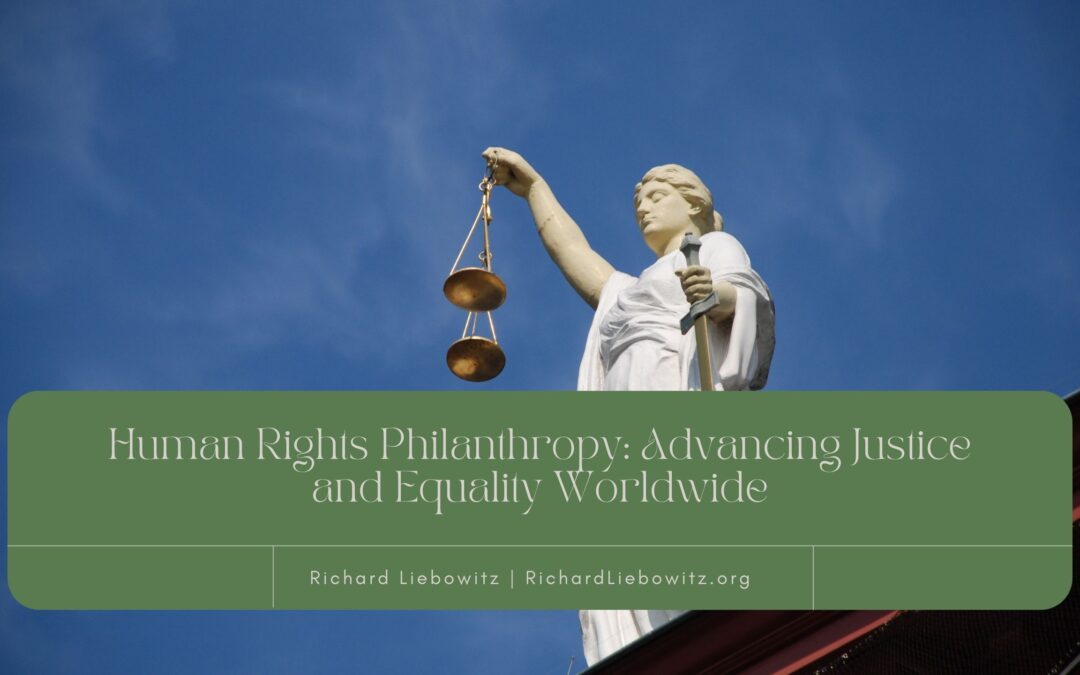Pursuing justice and equality remains a fundamental challenge in a world of diversity and interconnectedness. Human rights philanthropy emerges as a powerful force committed to addressing these issues globally. Beyond mere financial contributions, human rights philanthropy strives to create lasting, positive impacts by supporting initiatives that promote justice, equality, and the protection of basic human dignity. This blog explores the significance of human rights philanthropy and how it plays a crucial role in advancing justice and equality worldwide.
The Scope of Human Rights Philanthropy
Human rights philanthropy encompasses a broad spectrum of initiatives aimed at safeguarding and promoting the inherent rights of every individual. It involves financial support, strategic partnerships, advocacy, and capacity building. Foundations, non-profit organizations, and socially conscious individuals contribute to this movement, recognizing the urgency of addressing systemic issues that slow progress toward a more just and equal world.
Addressing Structural Injustices
One of the primary focuses of human rights philanthropy is addressing structural injustices perpetuating inequality. Whether it is discrimination based on race, gender, or socio-economic status, philanthropic efforts are channeled into dismantling these barriers. Foundations often support grassroots organizations that work tirelessly to challenge discriminatory policies, promote inclusivity, and empower marginalized communities.
Education and Empowerment
A cornerstone of human rights philanthropy is the belief that education catalyzes change. By investing in educational initiatives, philanthropists aim to equip people with the knowledge and skills to challenge injustice. This includes supporting programs that provide education on human rights, civic engagement, and social justice issues. Empowering individuals through education transforms lives and fosters a culture of awareness and activism.
Global Advocacy and Partnerships
Borders do not confine human rights issues, and philanthropy recognizes the importance of global collaboration. Foundations often engage in strategic partnerships with international organizations, governments, and grassroots movements to amplify their impact. This collaborative approach allows for gathering resources, sharing best practices, and developing comprehensive strategies to tackle systemic issues on a global scale.
Crisis Response and Humanitarian Aid
Human rights philanthropy is crucial in providing immediate relief and long-term support in times of crisis. Whether responding to natural disasters, conflict, or public health emergencies, philanthropic organizations contribute funds, expertise, and resources to deal with the immediate needs of affected populations. Additionally, they invest in sustainable solutions that promote resilience and recovery, recognizing the interconnectedness of humanitarian aid and long-term human rights goals.
Measuring Impact and Accountability
Effective human rights philanthropy is rooted in transparency, accountability, and impact measurement. Donors strive to ensure that their contributions improve the lives of those they seek to support. This involves ongoing evaluation, learning from successes and failures, and adapting strategies to maximize positive outcomes. By holding themselves accountable, philanthropists contribute to a continuous improvement and innovation culture in pursuing justice and equality.
Human rights philanthropy is a beacon of hope for a more just and equal world. By addressing structural injustices, promoting education and empowerment, engaging in global advocacy, and responding to crises, philanthropic efforts create a ripple effect beyond individual projects. Human rights philanthropy remains a powerful force for positive change, demonstrating that collective action and commitment can advance justice and equality worldwide.

